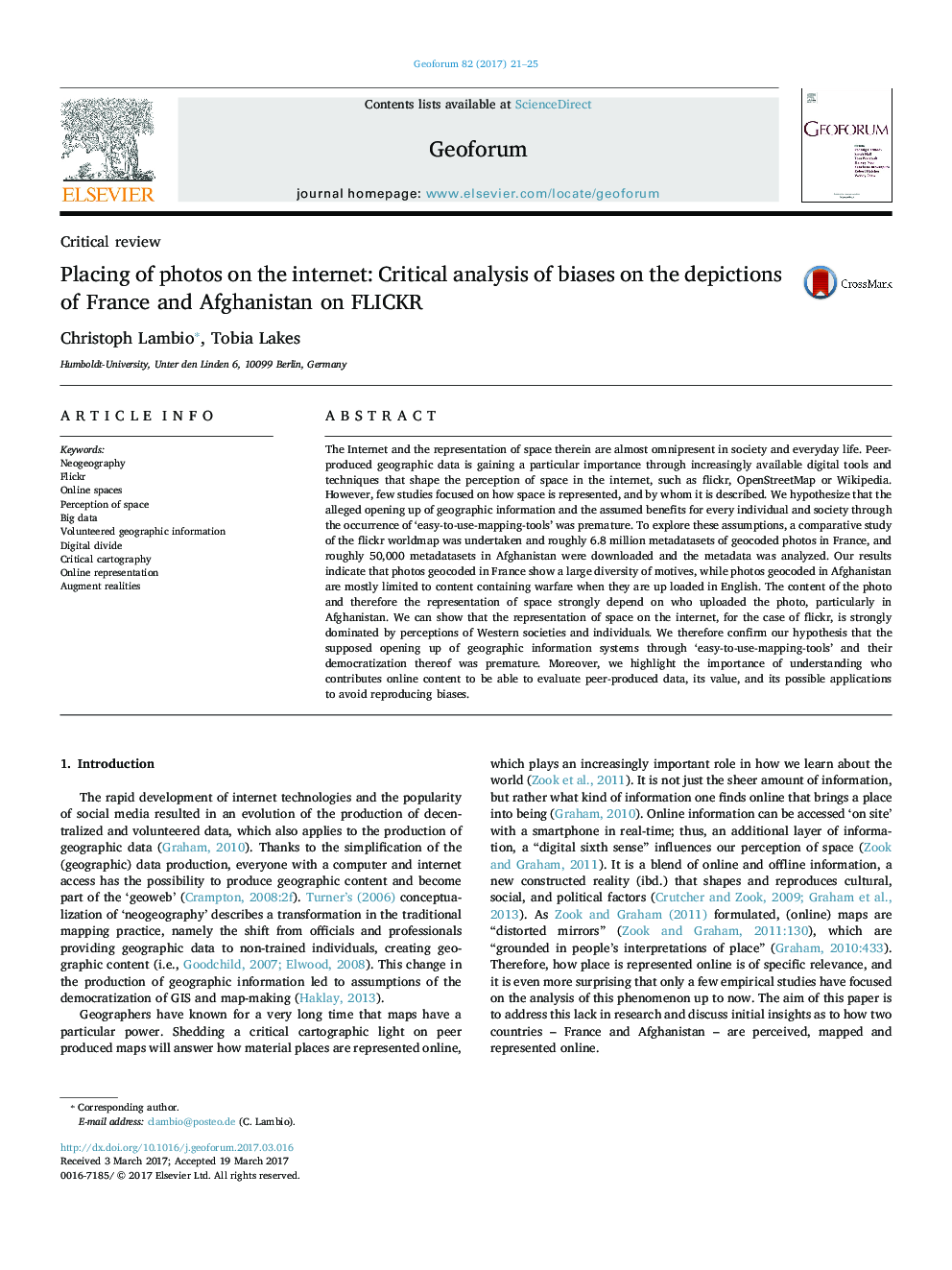| کد مقاله | کد نشریه | سال انتشار | مقاله انگلیسی | نسخه تمام متن |
|---|---|---|---|---|
| 5073331 | 1477107 | 2017 | 5 صفحه PDF | دانلود رایگان |
عنوان انگلیسی مقاله ISI
Placing of photos on the internet: Critical analysis of biases on the depictions of France and Afghanistan on FLICKR
دانلود مقاله + سفارش ترجمه
دانلود مقاله ISI انگلیسی
رایگان برای ایرانیان
کلمات کلیدی
موضوعات مرتبط
علوم انسانی و اجتماعی
اقتصاد، اقتصادسنجی و امور مالی
اقتصاد و اقتصادسنجی
پیش نمایش صفحه اول مقاله

چکیده انگلیسی
The Internet and the representation of space therein are almost omnipresent in society and everyday life. Peer-produced geographic data is gaining a particular importance through increasingly available digital tools and techniques that shape the perception of space in the internet, such as flickr, OpenStreetMap or Wikipedia. However, few studies focused on how space is represented, and by whom it is described. We hypothesize that the alleged opening up of geographic information and the assumed benefits for every individual and society through the occurrence of 'easy-to-use-mapping-tools' was premature. To explore these assumptions, a comparative study of the flickr worldmap was undertaken and roughly 6.8Â million metadatasets of geocoded photos in France, and roughly 50,000 metadatasets in Afghanistan were downloaded and the metadata was analyzed. Our results indicate that photos geocoded in France show a large diversity of motives, while photos geocoded in Afghanistan are mostly limited to content containing warfare when they are up loaded in English. The content of the photo and therefore the representation of space strongly depend on who uploaded the photo, particularly in Afghanistan. We can show that the representation of space on the internet, for the case of flickr, is strongly dominated by perceptions of Western societies and individuals. We therefore confirm our hypothesis that the supposed opening up of geographic information systems through 'easy-to-use-mapping-tools' and their democratization thereof was premature. Moreover, we highlight the importance of understanding who contributes online content to be able to evaluate peer-produced data, its value, and its possible applications to avoid reproducing biases.
ناشر
Database: Elsevier - ScienceDirect (ساینس دایرکت)
Journal: Geoforum - Volume 82, June 2017, Pages 21-25
Journal: Geoforum - Volume 82, June 2017, Pages 21-25
نویسندگان
Christoph Lambio, Tobia Lakes,